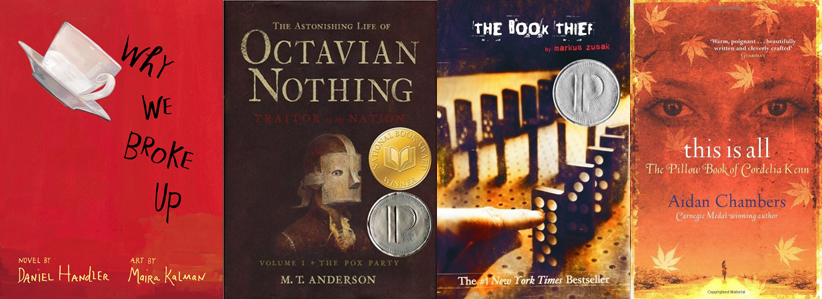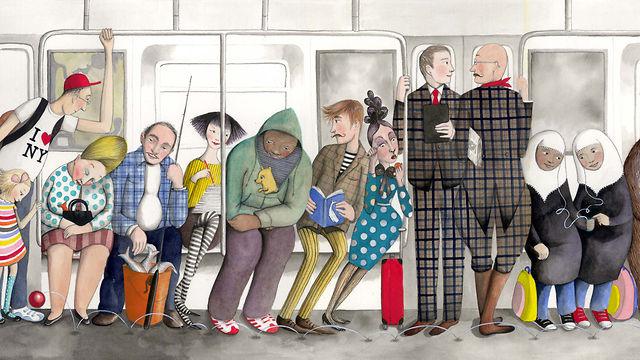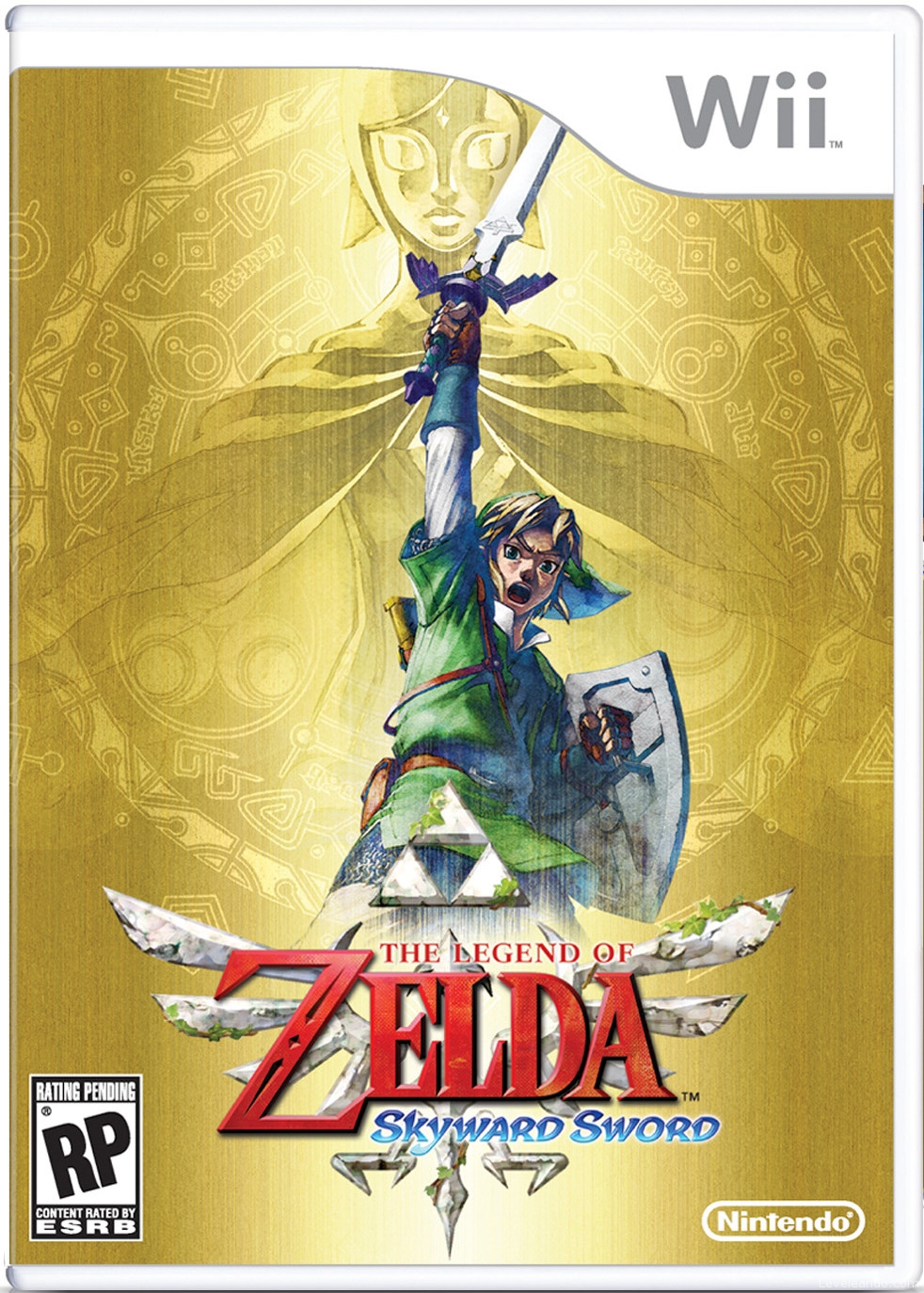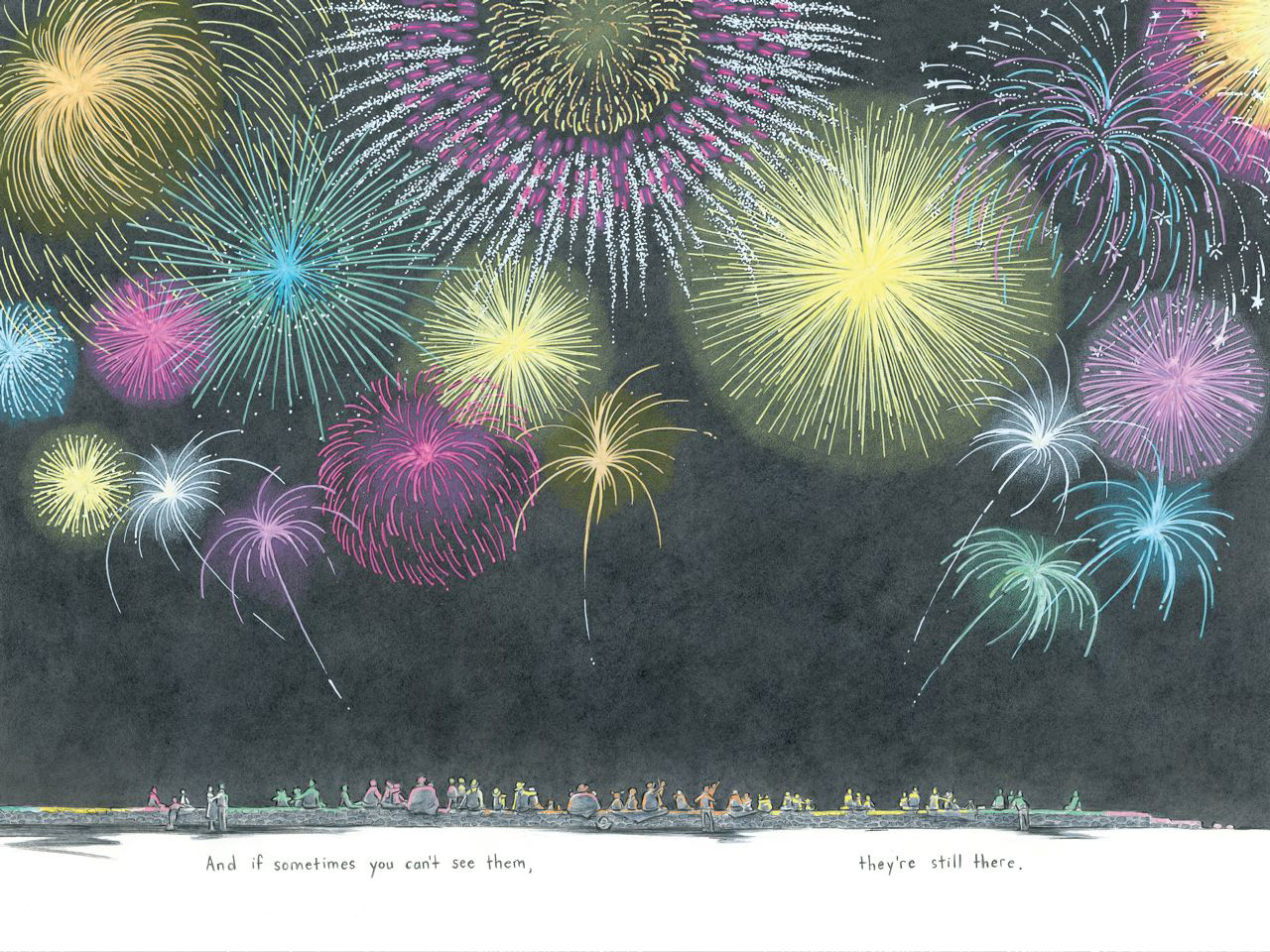First of all, thank you for bearing through my sappy-sappy last post and thank you for your kind comments! I have been trying to keep this blog marginally book focused, but A) I’m not sure I will ever lose my Personal Blogger tendencies and B) I am just a super sappy person. Sorry.
But now, I’d like to talk about books. As I’ve mentioned many MANY times before, I am on the brink of a major shift in my reading landscape. I usually feel the reading itch this time during the semester, start fantasizing about all the books I’ve missed out on, all the books on my to-read list, all the books that are the complete opposite of everything I’ve been allowed to read… but because I am leaving school, this is feeling like a time for big changes.
A few weeks ago, the Internet was alive with inflammatory opinion pieces about reading. I’m not going to talk about Joel Stein because I cannot take anyone seriously whose argument is “YA books suck. I’ve never read any, but I’m sure they suck. Therefore, if you read them, you suck.”
Maura Kelly’s article in The Atlantic, though, really caught my attention. Her “Slow-Books Manifesto” urges enlightened readers to take their books like they take their food: “Read books. As often as you can. Mostly classics.” Eschew the processed, packaged, high-fructose corn syrup of books in favor of the grass-fed beef, the garden-fresh produce, the home-cooked meal.
This is a food analogy that I like. Actually, I kind of want to stop writing this blog and re-read Animal, Vegetable, Miracle instead.
But many YA book bloggers took offense to this article’s sentiment, arguably because they felt that much of YA – the books they read, promote, and enjoy – does not qualify under Kelly’s criteria for books worth a slow read. I agree that Kelly’s definition seems to be an arbitrary mix of The Western Canon + Contemporary Literary Tomes (Franzen, Gaitskill, etc). This is exactly the kind of Recommended Reading that has irritated readers and writers of “genre” fiction (romance, women’s, SFF, chick-lit, and YA alike) for years and years.
And Kelly’s arguments are a sorry lot. According to Kelly, classics alone “challenge us cognitively even as they entertain,” as if no other books have this capacity, as if some books can challenge the cognition of all people, innately. “Strong narratives help us develop empathy,” Kelly writes, indicating that she has likely never read a YA book in her life, never mind the question of what exactly *is* a “strong narrative”… the language she chooses throughout is so undefined and arbitrary, I begin to feel a little like I’m reading Joel Stein all over again.
But despite poor argumentation, I think that for me, as I move from a time of mandated reading, of 2-5 books on the syllabus each week, I could use a little slow reading.
There is something about trying to stay up to date with the YA scene that is simply wearying – so many books being published, and every other book is just SO good getting SO much buzz, you simply must read. And even if I pace myself, try to read some longer, denser books alongside quicker reads, I usually abandon the longer book. The lure of the new, the easy, the fun, is too much for me.
For me, it’s difficult to juggle a slower-read with other books. And y’all know how much I love to juggle books. A slow-read requires my full attention. And my competitive spirit that urges me to get to 100 books a year makes me feel lazy if I’m not “on pace.”
But here’s the catch. I think plenty of YA qualifies as Slow Read-worthy.
It took me months to get through Markus Zusak’s The Book Thief. I read a chapter and put it down. Read a chapter and put it down. This is a good book, a popular book, but was not easy for me to get through. And I’ve wanted to read Aidan Chambers’s This Is All for years now – it’s the intimate diary of a teen girl, which is something I like to read, and the format is innovative and interesting. But it’s an 800+ page tome; it doesn’t fit neatly into my purse so I can read on the bus. Even an intense voice can be daunting for me – I’ve checked out Daniel Handler’s Why We Broke Up twice now, but can’t get past the first few chapters because there is so much Min there – maybe this is the strong narrative Kelly was talking about? If you have ever picked up M.T. Anderson’s Octavian Nothing, you know exactly what I am talking about: I think this is one of the most brilliant books ever written, but it took me 3-4 readings to come to that conclusion, most of which occurred in 10 minute chunks because my brain couldn’t handle any more than that.
I might take the rest of the year and chill from the reading rat race. There are a lot of books on my shelf collecting dust that have been too intimidating to be read while juggling jobs, papers, and assigned reading; books that while maybe will not enhance my cognition any more than a shorter book, are still probably worth reading. In a month I will have a chance to do something different, and I’m thinking about taking it slow.









